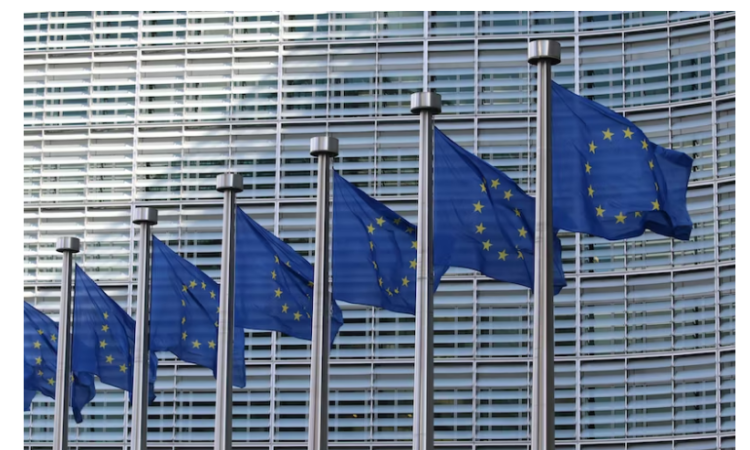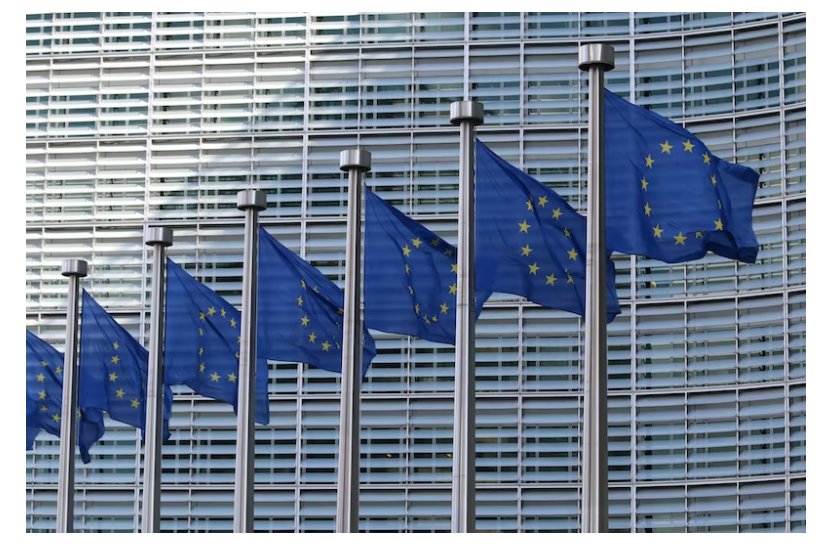
“If the EU sticks to its fiscal rules, it won’t have enough money for its geopolitical ambitions,” warns Eurointelligence founder Wolfgang Münchau.

European Citizens are €3000 a Year Worse Off
As a prelude to Münchau’s take, please consider November 2022 article Austerity Policies Have Made European Citizens €3000 a Year Worse Off by the New Economics Foundation.
After the 2008 financial crisis, the EU introduced stricter fiscal rules that define limits to government borrowing and spending, in an attempt to reduce the levels of government debt. This included a reinforcement of the rules to bring government deficits under 3% of GDP and debt-to-GDP levels under 60%. EU member states attempted to follow these rules through cuts to public spending and cancelling planned public investment. The report finds that this has left Europe less resilient to economic shocks like the Covid-19 pandemic and the Russian invasion of Ukraine.
The research finds that austerity policies in the EU, brought in following the 2008 financial crisis, have led to a permanent scarring of incomes, and cuts to spending on infrastructure and vital public services.
Polling commissioned by NEF and Finance Watch and conducted by Censuswide earlier this year found that two out of three Europeans polled agree that rules around spending should be changed to allow governments to spend more on education, health, social care and jobs.
In his July 2023 article, Austerity is Back, Eurointelligence founder Wolfgang Münchau agrees with the above take.
Austerity is Back
I called it the worst policy mistake of my lifetime – the austerity after the onset of the eurozone crisis. It permanently damaged the eurozone’s economic resilience, contributed to the rise of the far-right, and drove a wedge between eurozone countries. They are about to do it again.
Austerity is not a trade-off between short-term pain and long-term gain. It makes people worse off in the long run too. The New Economics Foundation recently came up with an estimate of the total cost of austerity during the entire period: a shortfall of €533bn in investment in infrastructure, including renewable energy. You can see it everywhere – in the form of underfunded armed forces and police, deteriorating railways and closed motorways.
It is going to be worse than last time because of where we are starting from. Italy had a deficit of 8% of economic output last year. This is projected to go down to 3.7% next year. From then onwards, Italy will need additional fiscal tightening. Together, this constitutes an unbelievable fiscal squeeze. France, which has more than its fair share of civil unrest, also needs to make fiscal cuts of a similar magnitude.
Now consider the politics. The EU’s climate change agenda is now moving into a phase where it starts to cost real money. The German government is just about to pass the domestic heating bill to force homeowners to replace cheap gas heaters with expensive heating pumps. A lot more costly environmental legislation is on the way from Brussels. The phase-out of the motor car will impose burdens on car owners. Opposition to Green policies are one of the causes for the surge in far-right support in Germany.
Now add austerity to the mix. With the return of the fiscal rules comes the return of the hard budget constraint. The Green agenda is the costliest project in the EU’s entire history. It will affect people unevenly. House owners, commuters and farmers will be much worse off than urban dwellers who are renting apartments. Austerity makes it harder for governments to compensate the losers. Brexit-style country-vs-town divisions are opening up.
Austerity will also constrain other large financial commitments such as financial and military aid to Ukraine. Now that the fiscal rules are back, this will now compete with domestic spending. In March, just after the anniversary of Russia’s invasion, the cost of the reconstruction of Ukraine was put at around $400 billion. It could easily double as the war goes on. Full EU membership would have further costs as the EU would have to support Ukraine for a long time after accession.
If Ukraine were to join the EU, it would become the largest net recipient of EU funds, crowding out current recipients, mostly from eastern and southern Europe. Germany’s net contributions, already the largest, would rise by a lot. I struggle to see how any of this is possible once the fiscal constraints kick back in.
The EU could resort to financial wizardry. It is a master of the dark art of fiscal smoke and mirrors. But there are limits to that too. The EU could launch a Ukraine reconstruction facility on lines similar to the recovery fund they created at the start of the pandemic. But this mechanism was sold as a one-off, and is not supported by everyone. The EU could try to co-opt international institutions and the private sector. It could divert the frozen Russian assets – some €200 billion in central bank reserves. But this is legally problematic, and might lead international investors to shun the eurozone. There are no easy choices. The bulk of the funding for the reconstruction will have to be guaranteed by national governments, and everything will require unanimity. That’s the bottleneck.
The combination of fiscal austerity and competing funding needs makes me sceptical about any uncosted big proposals – like large-scale financial support for Ukraine or a European army. The big question is not whether these are good ideas. I believe they are. I just cannot see how you can organise a political majority in favour of it, and still do all the things necessary for the EU to function, and then some.
Austerity has many economic consequences, but the political side effects are utterly toxic. Our deficits are much higher now than they were back then; we have high inflation; the extreme right is much stronger; and the EU has pre-committed itself to an expensive Green agenda. All this constrains the EU’s foreign policy choices just at a time when the EU is starting to discover its geopolitical role.
The maths just does not add up. We are reaching the limits of what a decentralised, rules-based EU can do.
The Math Does Not Add Up
The math certainly does not add up, but why?
“The Green agenda is the costliest project in the EU’s entire history. It will affect people unevenly,” says Münchau.
Whose fault is that?
“The German government is just about to pass the domestic heating bill to force homeowners to replace cheap gas heaters with expensive heating pumps. A lot more costly environmental legislation is on the way from Brussels,” says Münchau.
How stupid is that?
“If Ukraine were to join the EU, it would become the largest net recipient of EU funds, crowding out current recipients, mostly from eastern and southern Europe,” says Münchau.
The EU is too unwieldly already. Adding more countries would make matters worse.
Reaching the Limits
With profound implications, I wholeheartedly agree with Münchau’s statement “We are reaching the limits of what a decentralised, rules-based EU can do.“
The Euro itself is fundamentally flawed. There is no single interest rate that makes any sense given the wide variance of productivity, work rules, pension obligations, and infrastructure differences between countries.
And rules are impossible to change because it takes 100% of the nations to do so.
France will never change its save the family farm mentality. Trade agreement negotiations between the EU and the rest of the world have fallen apart every year for 30 years because France will not allow any changes to agricultural policy.
Germany and Netherlands will not agree to remove fiscal brakes. One might suggest, like Münchau, that this is a terrible idea. Others think its great. Pragmatically, it depends on what the money is used for.
In practice, a lot of stupid stuff, including heat pump replacements and a lot of nonsensical climate agenda rules.
The EU is big, unwieldly, and totally inflexible. The UK did good to escape even though it blew the initial handling of Brexit.
2 Out of 3 Politicians Want More Money
Here’s a key point from above: “Polling commissioned by NEF and Finance Watch and conducted by Censuswide earlier this year found that two out of three Europeans polled agree that rules around spending should be changed to allow governments to spend more on education, health, social care and jobs.”
I’m shocked that it’s only 2 out of 3.
None of these polls ever ask “How the hell do you propose to pay for this?”
One good thing about fiscal brakes is it forces decisions about where to focus.
Münchau wants an army, support for Ukraine, heat pumps, artificial intelligence spending, and of course, climate change. The math does not add up.
Seriously now: why is internet so bad in Germany anyway?
Please consider Seriously now: why is internet so bad in Germany anyway?
Germany is 25th worldwide in average internet speed (2017), was 22nd in 2015 – just 15,3 Mbp/s. Half as fast as South Korea and below 13 other EU countries, as well as Switzerland. For the average highest internet speed, we’re only at 45th, behind 17 EU countries and Switzerland! We’re even further behind in fiber optics – only 4 countries rank lower than us. The mobile 4G network is also one of the worst in Europe, both in average speed and availability we’re at the bottom of the rankings, while we pay some of the highest prices in Europe for data.
A study from 2018 from the federal network agency established that only 1.6 percent of German smartphone users can reach the promised internet speeds on their devices.
That article is dated, but sadly it is still accurate.
Mish Suggestions
- Scrap the EU army idea, scrap heat pumps, and scrap all of the climate change agendas.
- Upgrade technology, internet service, and phones. Instead, Germany’s focus is on heat pumps!
- Spend more on AI and research.
- Dismantle preposterous rules and regulations.
- Stop trying to protect diesel.
- Let the free market pick the energy and climate winners.
Germany does not need the same things as Sweden so why have the EU dictate everything?
In general, get the hell out of the way.
Let’s return to Münchau’s opening gambit. “If the EU sticks to its fiscal rules, it won’t have enough money for its geopolitical ambitions.”
Is that a bad thing?
Electric Vehicles for Everyone? If the Dream Was Met, Would it Help the Environment?
In case you missed it, please consider Electric Vehicles for Everyone? If the Dream Was Met, Would it Help the Environment?
Also consider Lesson of the Day: If You Weaponize the Dollar and Confiscate Assets, Expect Retaliation






